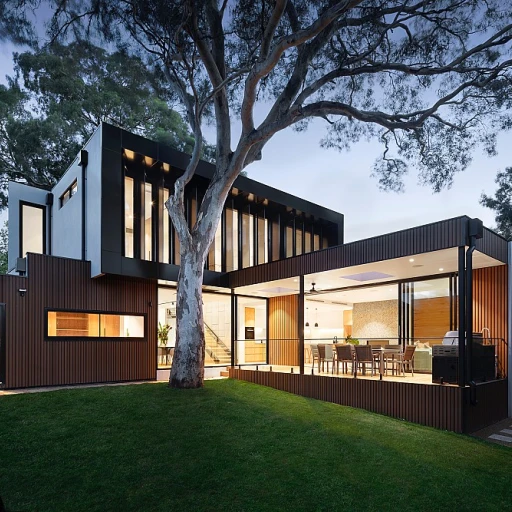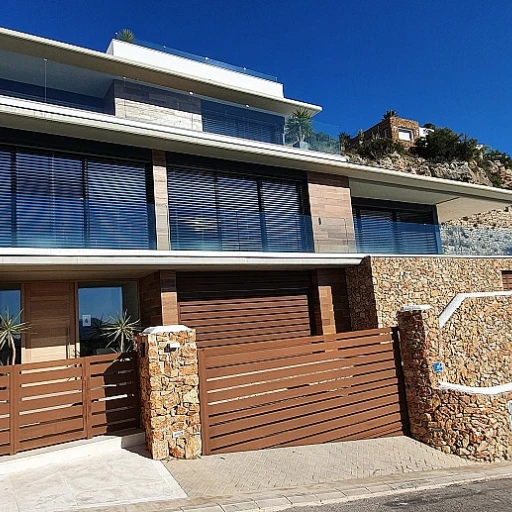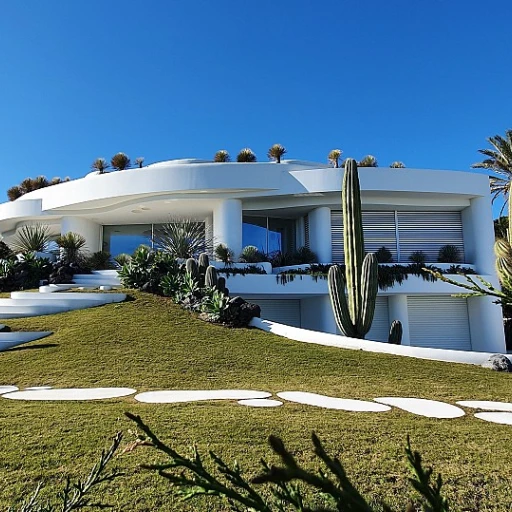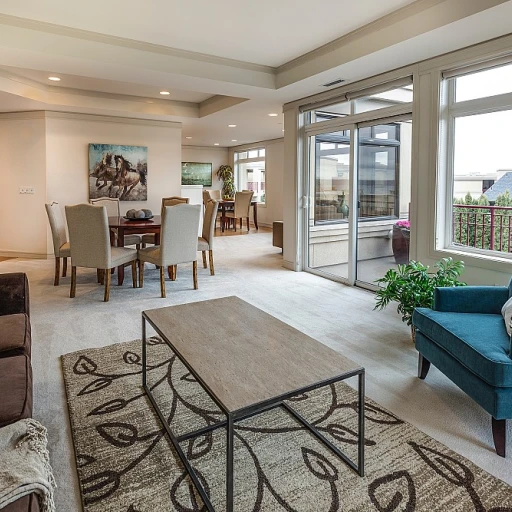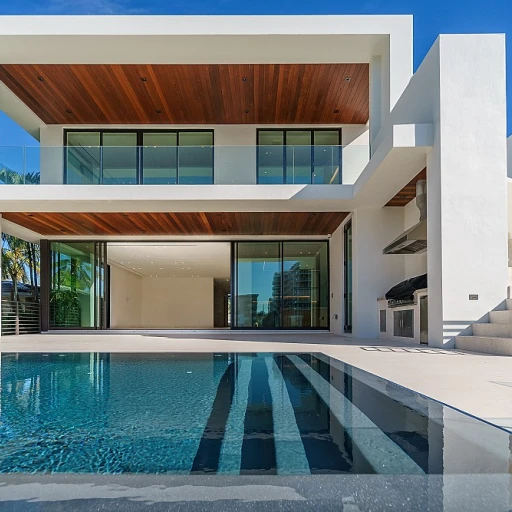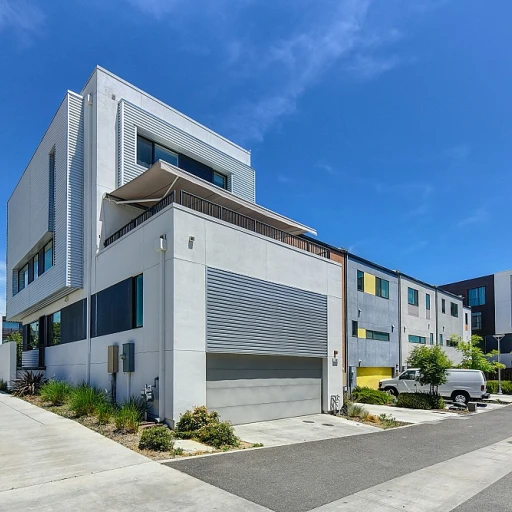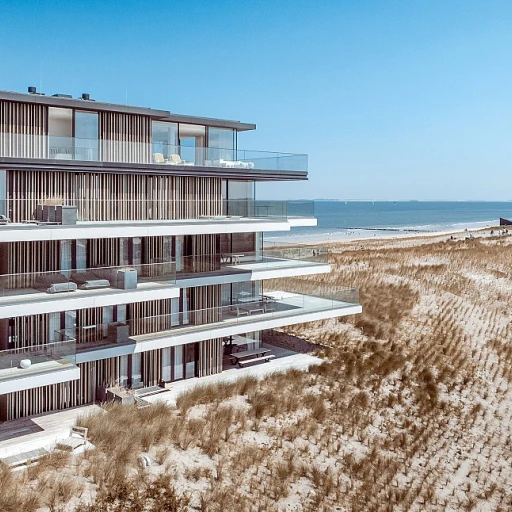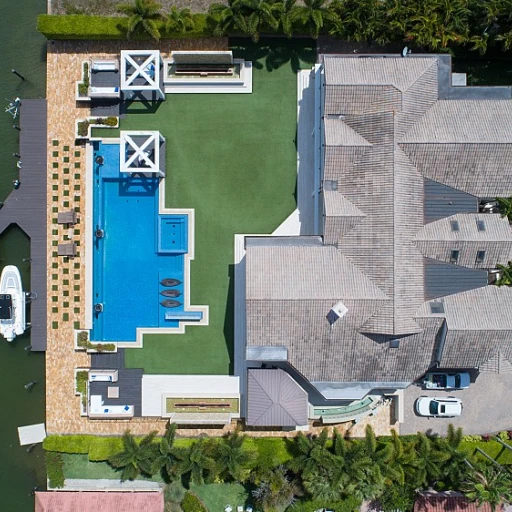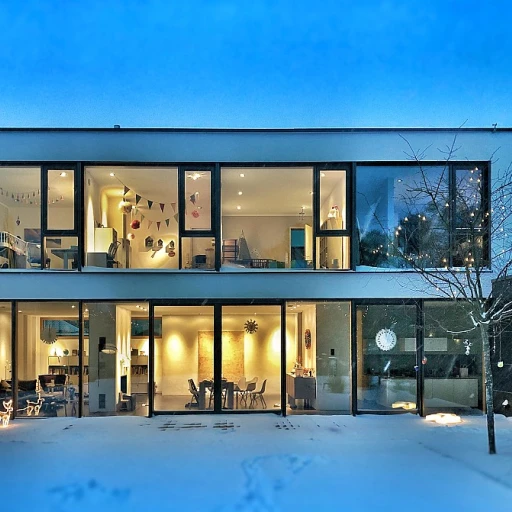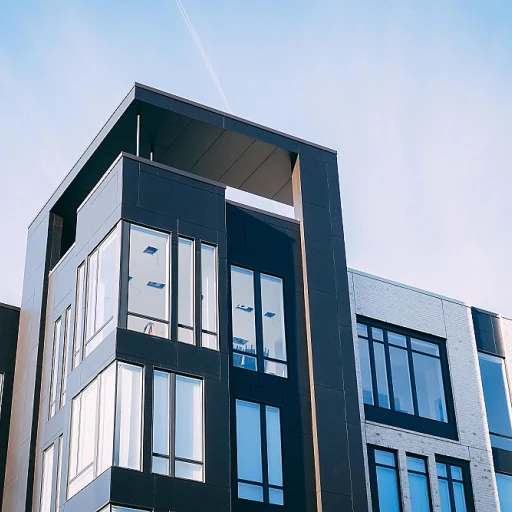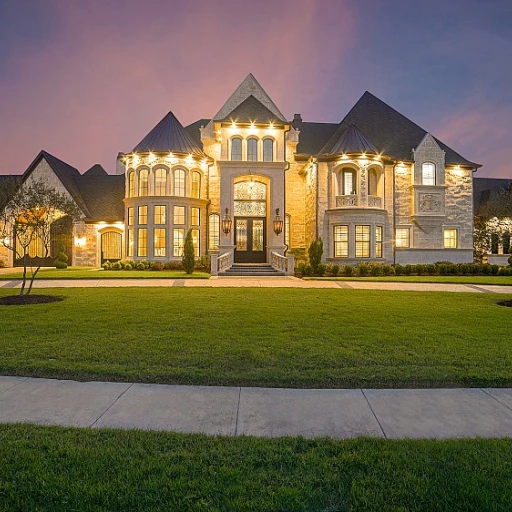
The Symbiosis of Tradition and Technology: Balancing Aesthetics with Innovation
Integrating Heritage with High-Tech: A Seamless Fusion
Marrying the timeless elegance of exclusive estates with cutting-edge smart home technology is not just a trend, it's a strategic enhancement of legacy. A recent study by Statista forecasts that revenue in the Smart Home market amounts to US$105.23 billion in 2023. This rapid growth reflects increased homeowner interest in convenience, security, and energy efficiency. As an analyst in the luxury real estate industry, I've observed how seamlessly integrating smart tech into heritage homes doesn't detract from their classic beauty but rather brings a new level of functionality and comfort, redefining the living experience.
Preserving the Essence While Enhancing Functionality
The challenge, of course, lies in implementing these technologies in a way that respects and preserves the historical integrity of the estate. It's about making the old meet the new in a harmonious blend. For instance, heritage estate owners can enhance their lighting systems with smart automation while preserving original fixtures or incorporating them into the design. A balance of aesthetics with innovation is key, ensuring that each added feature feels like a natural extension of the home's legacy. A survey by Houzz found that 28% of renovators in heritage homes prioritize integrating smart technologies—indicating a valuable intersection of tradition and progress.
Empowering Estates with Intuitive Interfaces
At the heart of this symbiosis is the user experience. Sophisticated smart home interfaces provide effortless control over an estate's systems, while remaining discreetly out of sight. Owners can now enjoy the luxury of adjusting climate, lighting, and security settings with a simple voice command or touch screen panel. Such advancements not only contribute to the home's allure but can significantly impact the utility costs. The U.S. Environmental Protection Agency (EPA) reports that smart thermostats can save up to $180 a year in energy costs. This detail drives the message that integrating technology is not only a nod to luxury, but an investment in sustainability and efficiency as well.
Smart Home Systems: A Tailored Approach for Luxury Estates
Integrating Personalized Tech for Elevated Living
For discerning owners of luxury estates, integrating smart home systems is more than an upgrade; it's a bespoke transformation. As the demand for personalized, technologically advanced living spaces increases, estates that harness the power of innovation are setting new benchmarks in the high-end property market. According to a report by Statista, the global smart home market is projected to reach a value of over $141 billion by 2023, indicating a booming interest in customized home automation solutions.
Implementing state-of-the-art smart home technology within the grandeur of an exclusive estate requires a tailored approach. The uniqueness lies in creating a seamless interface between the homeowner's preferences and the estate's inherent character. For example, climate control systems can be designed to maintain optimal conditions without detracting from the architectural aesthetics, ensuring that each room's ambiance is preserved while delivering modern comfort. "In pursuing a luxury lifestyle, the devil is in the details, and precision in customization is key," as quoted by a renowned estate manager.
When integrating smart systems, homeowners often weigh the benefits of advanced security features—a top priority for luxury estate management. The latest surveillance technologies, coupled with AI-driven analytics, provide not only safety but also peace of mind, knowing that the estate is protected by systems as discerning as its residents. Biometric access controls and perimeter security are additional layers that can be woven into the estate fabric, enhancing both convenience and security.
Another aspect of personalized smart technology is the incorporation of smart entertainment systems. A luxury estate should offer an unparalleled audio-visual experience, and this is where high-fidelity sound systems and hidden projections come into play. By 2022, revenue in the home entertainment segment is expected to reach $103 million (Statista), indicating a significant investment in creating immersive experiences within the opulence of a private sanctuary.
For those keen on integrating cutting-edge smart technology while preserving privacy, smart glass solutions offer a revolutionary way to marry sleek design with functional innovation. This technological gem demonstrates how discerning clients can tailor their environment's transparency literally at the touch of a button. Its application exudes a sense of futuristic sophistication, aligning perfectly with the luxurious standards of exclusive estates.
Customizing Smart Energy Management and Sustainability
Energy efficiency is not only a hallmark of modern living but also a significant factor in property valuation. Exclusive estates are no exception; smart integration in this domain can lead to substantial cost savings while promoting sustainability—a consideration growing in importance among affluent homeowners. By integrating customized smart energy management systems, estates can optimize resource consumption, harness alternative energy sources, and significantly reduce carbon footprints.
Analytical tools embedded within smart home systems enable estate owners to monitor and adjust energy usage across sprawling properties. These technologies not only conserve resources but can also adapt to lifestyle patterns, ensuring that energy consumption aligns with the owner's presence and preferences. Implementing smart lighting, solar panel arrays, and energy storage systems can yield an average energy savings of up to 30% (U.S. Department of Energy), magnifying both the estate’s efficiency and its green credentials.
Statistics reflect a growing trend among luxury properties to showcase responsible energy use without compromising on grandiosity. Innovative solutions such as geothermal heating and estate-scale atmospheric water generation are becoming increasingly prevalent, setting a new standard for self-sufficiency and eco-friendly luxury. These smart home technologies not only demonstrate a commitment to sustainable living but also contribute to the property's attractiveness for future generations of estate owners.
The Investment Perspective: How Smart Homes Increase Estate Value
A Strategic Enhancement: The Value-Adding Power of Smart Home Integration
Integrating smart home systems into heritage estates has become an increasingly popular trend for discerning homeowners looking to blend luxury with convenience. Recent studies show that properties with smart technology can see a value increase of up to 5% compared to standard homes, a compelling statistic for any estate owner. Moreover, as the expectations of high-net-worth buyers evolve, the demand for connected homes escalates, making smart homes not only a lifestyle enhancement but also a strategic investment (source: Smart Home Market Watch).
Smart Security: A Cornerstone for Estate Value Appreciation
Elevating the security aspect of exclusive estates through cutting-edge smart systems can lead to significant valuation premiums. Properties that boast advanced security features, such as biometric scanners, remote monitoring, and integrated emergency systems, stand out in the real estate market. In fact, a survey by the National Association of Realtors found that 50% of potential homebuyers consider state-of-the-art security systems to be "very important" when evaluating properties, illustrating the direct impact on estate desirability and value (source: NAR Home Buyer and Seller Generational Trends Report).
Eco-Friendly Innovations: The Advantage in Sustainability
The convergence of eco-consciousness with smart technology is reshaping the real estate landscape. Properties equipped with energy-efficient smart systems not only reduce their carbon footprint but also offer economic advantages. A smart thermostat, for example, can save up to 23% on heating and cooling costs, translating to tangible savings that are highly attractive to potential buyers (source: Energy Star Ratings). As sustainability becomes a primary concern for the elite market, the inclusion of green technology in estates solidifies their upmarket position.
Adaptable Environments: Future-Proofing with Smart Home Ecosystems
The ability for an estate to adapt and upgrade its systems with minimal structural impact is a key consideration for preserving its long-term value. A study by the Connected Home Advisory Board indicates that homes designed with an adaptive infrastructure for smart technologies can experience increased longevity in market relevance, thereby preserving their value for generations to come. The integration of flexible, upgradable smart home networks ensures that an estate remains at the forefront of innovation.
To delve deeper into the intricate relationship between smart home systems and the elevation of estate value, visit our in-depth analysis on how smart glass is revolutionizing privacy and design in exclusive estates.
Collaboration with Visionary Architects and Designers
Envisioning the Exclusive Estate: Teaming up with Top-Tier Talent
When mirrors reflect the essence of centuries and walls whisper legends of time, integrating modern smart home technology without disrupting the inherent charm of a heritage estate is no small feat. Achieving this delicate balance calls for not just an eye for design but also a visionary approach, facilitating a harmonious union between the old and the new. In fact, according to a Business Insider report, luxury property buyers list design and technology integration among the top criteria for purchasing a high-end property. This statistic highlights the growing importance of enlisting collaboration with visionary architects and designers who specialize in blending the avant-garde with the antique.
Crafting Elegance with Edge: Technological Symmetry in Design
Working with professionals who possess an analytical understanding of both the latest in smart home innovation and the subtleties of historic estates, is crucial. They tailor unique solutions that preserve the estate’s character while providing cutting-edge functionality. Forbes quotes several high-end real estate professionals who affirm that smart home features are no longer just add-ons but expected necessities among affluent buyers. A pioneering architect will ensure each technological adaptation maintains architectural integrity and further enhances the aesthetic value of the estate.
Exclusive Real Estate Trend Analysis: Staying Ahead of the Curve
As these living spaces become increasingly intelligent, statistical data underlines the value they add. A joint survey by the National Association of Home Builders and CEDIA indicated that automated lighting, temperature control, and advanced security systems were among the top smart home features requested by homeowners in the luxury market segment. By collaborating with industry-leading architects and designers, estate owners can ensure that technological integrations are not just current but anticipate future trends and needs, setting a new benchmark for luxury living.
Architectural Integration: When Heritage Meets High Tech
Proactive collaboration might involve integrating sophisticated estate-scale atmospheric water generation systems or ensuring that the high-tech amenities operate invisibly within the framework of the estate’s historic fabric. Think hidden panels, retractable screens, and smart glass that transitions from transparent to opaque—these are examples of clever design that aligns with the exclusive lifestyle of owners who desire the epitome of luxury and privacy without compromising on the estate’s heritage.
Shaping the Legacy with Smart Enhancements
The injection of smart technology into exclusive estates is not merely a trend; it's a strategic move towards redefining legacy for the future generation. The connectivity and convenience offered by such systems inherently transform the living experience while safeguarding the estate’s traditional allure. As Architectural Digest eloquently puts it, 'when the canvas is as opulent as an exclusive estate, the additions must be both painterly and precise,' ensuring that each technological brushstroke enhances the overall masterpiece that is the heritage estate.
The Future is Now: Paving the Way for Next-Generation Estate Owners
Embracing Cutting-Edge Home Automation
Exclusive estates at the forefront of technological sophistication are not just homes, but art pieces resonating with modernity. A study from Statista projects that revenue in the Smart Home market amounts to US$90.968 billion in 2023, signaling the robust expansion of the industry. Estate owners who are ready to merge this technology with their historical properties will gain a significant edge, preserving heritage while imbuing their homes with the future's convenience and efficiency.
Smart Amenities and Interconnectivity
Imagine properties where every whim is met with a responsive, interconnected ecosystem. The term ‘smart home’ is projected to dominate the estate lexicon, as convenience and interconnectivity become hallmarks of luxury living. Estate owners can foster a harmony of smart energy systems, advanced security, and automated climate control for unparalleled living experiences. The integration of these systems can seamlessly align with the daily routines of energetic next-generation owners, creating a bespoke lifestyle powered by innovation.
Adopting Sustainable and Intelligent Systems
Next-generation estate owners are not merely focused on luxury, but are also passionate advocates for sustainability. The conscious decision to integrate eco-friendly smart systems can lead to substantial reductions in energy use, with some reports indicating potential savings of up to 30%. In response to climate change, smart homes are stepping stones towards reducing carbon footprints, while maintaining the sumptuous ambiance that is synonymous with heritage estates.
Legacy Through Technological Handprints
By infusing state-of-the-art technology into the very fabric of heritage estates, forward-thinking owners create a personal and familial legacy that transcends time. It conveys a message of respect for the past combined with determination to push the boundaries of what a home can be. This progressive mindset, embraced by estate owners worldwide, ensures that their cherished homesteads are not left behind in an ever-advancing world, but rather, leading the charge into the future of housing and home management.
Guiding Next-Generation Pioneers
Leading estate owners are in a prime position to mentor the next wave of inheritors—those who will shoulder the responsibility of maintaining the grandeur of a heritage estate while propelling it into the digital age. Statistics show a growing interest among younger demographics in smart home technology, with 47% of millennials already owning smart home products. By setting a precedent, existing owners are establishing a roadmap for the heirs to not only continue but evolve the legacy of luxury, history, and now, technological marvel.
-large-full.webp)
